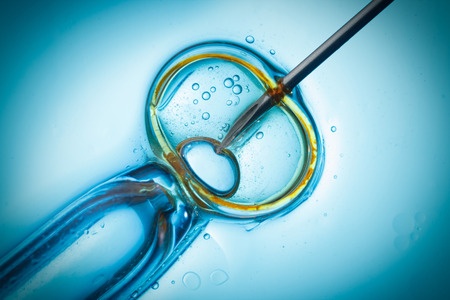A man’s fertility relies on the quantity and quality of his sperm.
In most cases, there are no obvious signs of infertility, so it’s hard to know if a man is infertile. Usually, intercourse, erections and ejaculation will happen without difficulty. So medical tests are necessary to find out if a man is infertile.
What causes infertility in men? We asked an expert to debunk common myths surrounding male infertility.

1. Wearing tight underwear affects the quality of sperm
True. Wearing tight underwear will increase the temperature within the groin area due to poor ventilation, poor blood circulation and compression of blood vessels.
There is a reason why the testicles are not in the abdomen. Sperm production is at its optimum when the environment around the scrotum is at least 1° Celsius cooler than the human body temperature, 36.8° Celsius.
For instance, cryptorchidism, a condition in which one or both testicles fail to descend from the abdomen into the scrotum, causing sperm production and quality to be critically affected.
2. Regular hot baths kill sperms
False. Regular hot showers do not kill sperm. However, regular sauna or bathing in a hot bathtub will affect sperm production and quality.
3. Frequent or heavy cycling affect men’s fertility
There’s little data on direct implication of sperm function from frequent bike riding, but studies have found men who reported cycling more than 5 hours weekly were more likely to have lower sperm counts and poor sperm motility.
This may be attributed to the sport involving long periods of sitting in a position that increases scrotal temperatures as well as bouncing and vibrations that could cause trauma to the testicles.
4. Healthy and fit men have good quality sperm
In general, most healthy men will have healthy sperm production and good quality sperm. However, age, medical conditions such as the absence of vas, vasectomy, blocked vas, varicocele can affect sperm quality.
Certain lifestyle habits such as smoking, drinking and poor nutrition and diets can also affect sperm quality.
5. Frequent ejaculation has an adverse effect on sperm quality
False. Spermatogenesis is a series of sperm developmental stages starting from an immature sperm cell to a mature sperm. It takes about 70 days for an immature sperm cell to become a mature sperm that has the capacity to fertilize an egg.
Spermatogenesis begins at puberty and continues throughout the life span of an individual. It is a continuous process so frequent ejaculation may reduce sperm count but sperm quality, in fact, may improve.
6. Sperms stay fresh and young with lower frequency of intimacy
Prolong abstinence from sex for more than 7 days will lower sperm quality due to lower viability. Factors that affect viability are:
- Old sperm
- Prolonged insults by free oxygen radicals to sperm within the epididymis reduces sperm DNA quality.
7. Taking supplements can help to boost male fertility
True. Taking supplements is one of the ways to improve male fertility. There are other ways of improving male fertility such as:
- Exercising regularly – as this improves testosterone production which leads to healthy sperm production.
- Having a balanced diet that includes fresh vegetables, fruits and proteins
- Reducing intake of food and drinks that are packed in plastic containers; bisphenol A or BPA, which is a common ingredient in these plastic bottles that has been shown to reduce fertility in animals.
- Regular sleeping hours
8. Folic acid does not improve sperm quality as it is most commonly used during pregnancy
There is a small study that shows folic acid improves sperm quality for some men. But a study involving more men is required to determine its role in sperm quality.
9. Does penis and testicle size matter in male fertility?
As the testicles have two main roles – produce sperm for reproduction and secreting male hormone- testosterone, a male with smaller testicles may produce less sperm than average.
However, a male with a smaller penis and testicles may be just as fertile as someone with that of larger sizes. It is best to seek a professional fertility specialist if you are trying to father a child.
10. Heat and radiation from devices (i.e. laptops) can kill sperms

True. The prolonged use of a laptop computer wirelessly connected to the internet and positioned near the male reproductive organs may decrease human sperm quality as studies have shown that electromagnetic radiation, emitted by wireless communication, can cause damage to semen. Prolonged heat is clearly detrimental to spermatogenesis.
11. Male infertility is genetic
True. Extensive screening programmes of men attending infertility clinics show that chromosomal and gene disorders make a significant contribution to spermatogenic impairment, and male infertility represents a complex disease with substantial genetic basis.
This is further proven as genetic causes account for 10–15% of severe male infertility, including chromosomal aberrations and single gene mutations.
12. Age doesn’t affect male fertility
False. Whilst many men remain fertile till they are 60, conceiving becomes more difficult and complicated as one ages. A man’s concentration of sperm, actual volume of sperm and sperm motility declines between 20-80 years of age. Some researchers have also discovered that genetic defects in the sperm increase with age in men.
13. If you’ve already managed to conceive a child, you don’t have to worry about fertility
False. Secondary infertility – the inability to get pregnant or carry a pregnancy to term after having a first child – accounts for 50 per cent of infertility cases. About one third of secondary infertility cases are related to male factors.
As mentioned above, age is a factor to consider when worrying about your fertility, as the quality of the semen diminishes as a man age.
If you have a question on male infertility, or looking to achieve positive results for your fertility, speak to an expert today.
This article is contributed by Dr. Liow Swee Lian, Scientific Director, Virtus Fertility Centre.
* * * * *
Like what you see here? Get parenting tips and stories straight to your inbox! Join our mailing list here.
Want to be heard 👂 and seen 👀 by over 100,000 parents in Singapore? We can help! Leave your contact here and we’ll be in touch.

























































